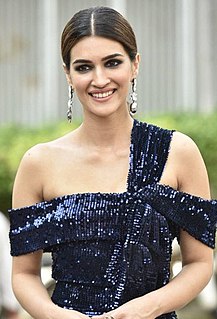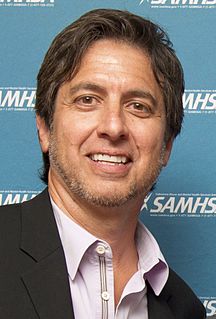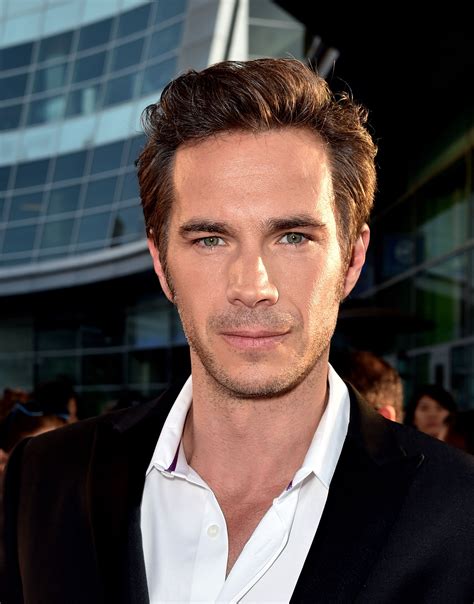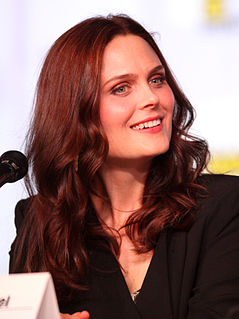A Quote by Dustin Hoffman
I think one of the things you have to be aware of as an actor is that if you come on the set and see the director standing there mouthing all the words while a scene is going on, that's usually a very bad sign because it means the director has already shot the scene in his head. He knows exactly the rhythm and the nuances that he wants delivered in the line and you're not going to dissuade him.
Related Quotes
Sudheer Varma is very easy going and very confident director. He knows exactly what he wants. He has a very good vision and knows how many shots he wants for a scene. He is super fast. He gives freedom for actors to try different things. The atmosphere on the sets was never serious. We had great fun working together.
I know what its like to direct. You become a more considerate actor. After you have directed, you understand what is going on. You can't help but think of the material as a director. You do come up with suggestions. You come up with shortcuts that you weren't aware of before. You try to be helpful to the director if he has a lot on his hands.
Stepping out of the director's chair completely and into a scene as an actor was weird. It was more excitement about directing than anything, but I was on a high from being a director and enjoying that process so much that going back to being an actor was almost secondary because I really was loving directing.
All directors on all sets behave slightly differently depending on what the scene is. For example, if you are doing a love scene, which is intimate then the director is likely to be intimate. If you are doing a scene where everyone is mucking around and laughing then the director is likely to start with that. If you are playing a scene which us incredibly heavy and everyone getting killed then there are probably not many laughs on the set.
As an actor, it's always important to understand what the director is after. That, to me, is my job. When I'm acting, I like to ask a lot of questions and understand exactly why the director is doing what they're doing, so that I can provide him or her with the ingredients that they need to get the scene that they want. It's not to challenge them, in any way. It's just so that I can do my job best.
But actually my dad is a very talented director and not just his use of shots and camera, but he's very good with actors and he knows acting well. It's great to see him do that and be really good at it and he's been doing it for a while and he certainly knows how to make movies, and little movies I guess for a television show, and he's going to come back in November to direct a second episode, which I'm really excited about.
When an actor plays a scene exactly the way a director orders, it isn't acting. It's following instructions. Anyone with the physical qualifications can do that. So the director's task is just that – to direct, to point the way. Then the actor takes over. And he must be allowed the space, the freedom to express himself in the role. Without that space, an actor is no more than an unthinking robot with a chest-full of push-buttons.
That scene that I have with Brad Pitt in Meet Joe Black is one of my favorite scenes that I've ever done. He's very modest. He's a real hardworking actor. I think he was going through something difficult at that time, and he never brought his personal stuff - not once! - on the set. He was a real pro. I remember doing that scene, and as I was acting, I thought, "I understand why this guy's a movie star." Because there was just something that he did when the cameras rolled. There was some kind of energy that was really magnificent, a real aura about him.
Any good director creates a playground. That's what they do. They hire the right actor, open the door and let them play because stuff will happen, right then and there. The audience wants to believe that what's going on is happening for the first time, ever. That's what acting is. That's what good scene writing is.



































